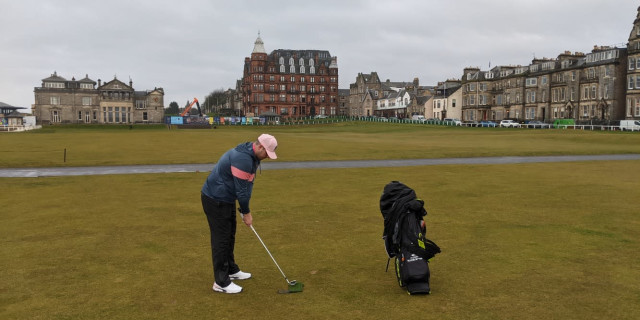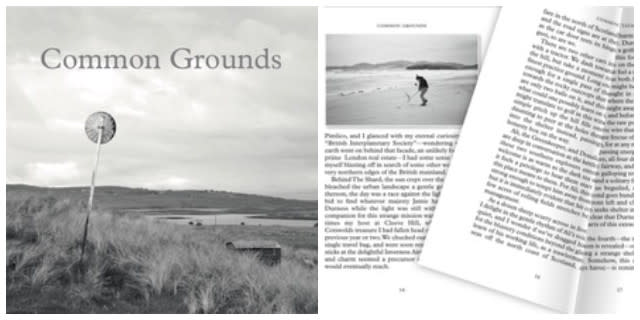
10 Ways a Golf Coach Will Improve Your Game and Lower Your Handicap
Article by Will Trinkwon
It’s one of the most important decisions you will ever face in your golfing career. Your handicap’s stalled at 15, 19 or 23 and no matter how many buckets of balls you beat on the range, all those niggly little swing kinks just won’t go away. In such times, a question flashes across your mind: should I see a golf pro? It’s a tough decision, especially with such high-profile self-taught golfers as Bubba Watson and Bryson DeChambeau tearing up the PGA Tour, but my experience is that, if you’re serious about improving your golf game, a golf coach is a necessary investment. To help bring you round to the benefits of taking lessons, here’s 10 reasons why a good coach will add quality to your game and shave shots from your scores.
1 – Swing Changes
First and foremost, a golf coach can help identify faults in your swing and correct them, leading to less botched shots and more impressive scores. Whilst the proliferation of do-it-yourself coaching tech, like swing recording apps and, for the more affluent among us, launch monitors, may lead you to conclude that you’re better off doing this alone, don’t be fooled. Even the best swing monitoring technology is no match for the expertise of a real-life coach. If you’re serious about sorting those swing flaws, a PGA-qualified teacher should be your first port of call.
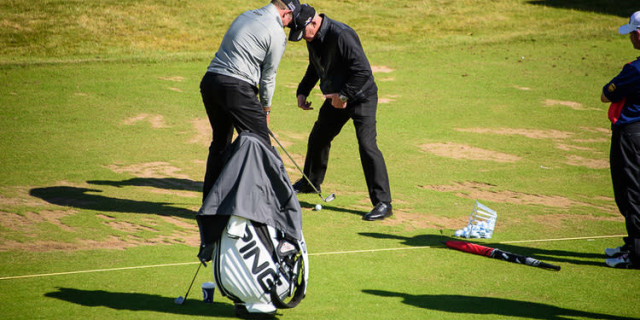
2 – Putting
Another area in which a golf coach can help improve your game is in putting. A mixture of factors, including putting’s apparent simplicity (compared to a full swing), as well as its relative lack of glamour, cause many players to overlook this crucial element of the game and the ways in which a PGA-qualified coach can help improve it. As with a fuller swing, while there are plenty of great putting aids on the market, these ought to be supplemented with the eye of a coach. A good PGA professional will be able to pick up on things that you wouldn’t even think of – an asymmetry between your shoulders and the putter head, or a small but important inconsistency in your address – as well as advising on drills and other exercises to help make the yips a thing of the past.
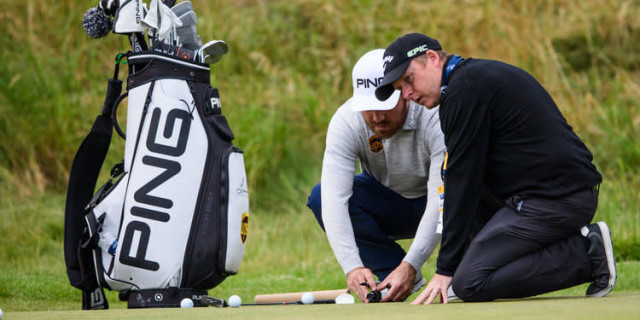
3 – Short Game
A lot of amateurs don’t realise this, but a good short game is mostly technique. Like with putting, the shortness and relative simplicity of the chipping and pitching action can mislead players about its importance and the benefits of getting it right. Set up, for example, is pivotal. Play the ball too far back in your stance and you increase the risk of thinning or flubbing one. Ditto if you play the ball too far forward. Getting the right bounce is also important and will provide a significant margin for error when you don’t manage to strike it quite flush. Finally, a good pro can also help train you in developing correct shot and club selection – knowing what shot to play and with what club to do it is half the battle, and one you’re more likely to win under the tutelage of a short-game savvy pro.
4 – Club Fitting
A PGA professional’s expertise isn’t just limited to technical problems, they also know a heck of a lot about club fitting. The benefits about finding the right tools for your game are numerous – chronic slicers can have their banana shots reined in by a driver with a closed face, while getting the right shaft for your swing-speed is an easy way to optimise ball flight. If you get really thick with your pro, he might even give you a discount, and many shops make club fitting’s complementary if they end in a significant buy. Don’t overlook the importance of a properly fitted set of clubs. It’s one of the quickest ways of improving your game.
5 – Technology
Moving on from the point about club fitting, a pro can also be worth seeing for their technology. These days more and more pros are investing in state-of-the-art equipment such as launch monitors, golf simulators and various high-tech swing trackers to help them get the low down on their students’ games. Depending on the precise item of equipment, these can be prohibitively costly to purchase yourself and may be difficult to properly interpret without a PGA pro’s expertise. With the guidance of a trusted professional, however, this technology can work wonders for improving your swing. It may be worth a trip to the pros for a go on these monitors alone.
6 – Nutrition, Training and Exercise
As you’ve probably started to glean from this article, today’s PGA pros have a really eclectic knowledge base which stretches far beyond identifying a good swing. Many can even provide instruction on things like nutrition and training and exercise regimes. With players like ‘Beef’ Johnson and Kevin Stadler swinging heavy on the PGA and European Tours, it’s easy to kid yourself that when it comes to golf, fitness doesn’t really matter. But it does. Things like shedding fat for muscle and improving flexibility can cause dramatic improvements in power and swing quality, as well as your ability to keep swinging strong in a round’s final holes. A PGA Pro can be your gateway to making this change.
7 – Course Management
One often underutilised aspect of a PGA-professional is the on-course playing-lesson. While such lessons are often more expensive than a half-hour touch up on the driving range, the value of going out and playing a few holes in your pro’s company shouldn’t be underestimated. Watching a top player go about making a score is a great way to learn how to do it yourself. Sure, you may not be able to spank 300-yard drives or get up and down from every which way to Sunday, but you can certainly pick up a thing or two about course management from watching a pro plot his way around the course. At the same time, a good pro will also be able to assess how you go about making a score, improving your course management and getting you into other low-score-friendly habits.

8 - Positive Thinking
Bobby Jones famously said that “competitive golf is played mainly on a five-and-a-half-inch course, the space between your ears”. And this too is another key area in which a lesson with a PGA pro can pay dividends. A clued-up pro can put you onto all sorts of great habits including keeping a diary of good shots (in order to help stay positive on every swing), and various other techniques to make sure that your headspace stays conducive to getting the absolute best out of your game.
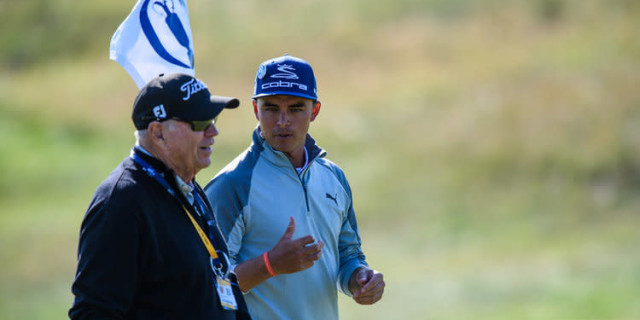
9 – Confidence
Perhaps most simply, having regular lessons with a PGA pro is likely to improve your confidence. It may be a bit of a placebo effect, but just knowing that a high-quality instructor is invested in improving your game can provide a mental edge (which may save you a couple of shots). Everyone knows that fresh-off-a-lesson feeling and the wonders it does for your ball-striking. Short term and long term, such confidence is bound to result in lower rounds.
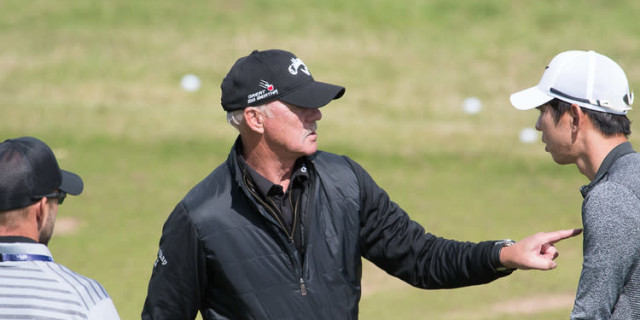
10 – A Friend
It might not improve your game, but one final way in which a golf coach can add to your life is just by being an extra friend. It’s a great feeling to be able to rock up at the range and have someone to share a laugh and a joke with, or to bitch to after a less-than-ideal round. The best student-coach relationships develop into these kinds of friendships and while this may not shave shots from your score, it will certainly add to the quality to your golfing life.
Image Credit: Kevin Diss Photography
If you want some instant tuition from a club or tour professional, visit the Golfshake Tips Section.
Tags: Tuition Tips Improve daily picks


